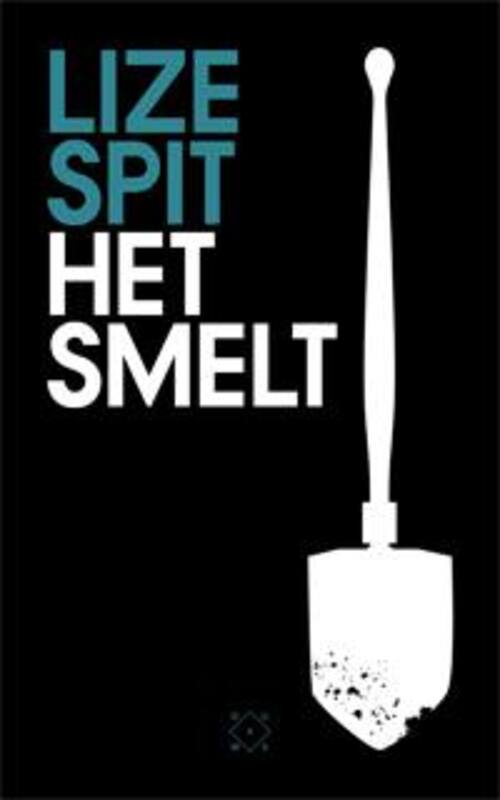
What if you could take revenge on an entire village?
1988, in the small Flemish village of Bovenmeer. Only three children are born that year, and only one of them is a girl, Eva. Together, the three children try to make the best of the situation, until they reach puberty. Then suddenly their relationships are altered. The boys devise cruel plans and it is up to the timid Eva if she wants to join them or betray their friendship. The option is no option.
Thirteen years after a searing summer in which everything got out of hand, Eva returns to the village with a huge block of ice in the trunk of her car. We gradually learn that she is making the decisions this time. With her debut Lize Spit grabs the reader by the throat from the very first sentence, determined to keep a tight headlock for all 480 pages. Merciless but loving, The Melting is a novel that leaves you perplexed.
‘Six publishers were interested in publishing her debut and when you have read it you know why. Her style and theme reminds me of Ian McEwan. Her writing career has a grand start. In 478 pages Lize Spit guides her main protagonist Eva with steady hand, in sensory and picturesque prose to her gallows. She does so lovingly and with compassion for her characters, but also eerily calm. Maddening from time to time. The author takes her time to unfold her story and this takes some courage. She describes gruesome details when necessary. She is merciless, tough as nails and a tad sadistic. Both for the reader and for Eva. The girl isn’t spared, no matter how hard she tries. Lize Spit isn’t making life easy for her. Her desperate search for interaction, friendship and warmth, it only leads to more disillusion, betrayal and misery. She takes care of everyone, but who takes care of her? No wonder that there is revenge involved.’ – Trouw
‘Lize Spit avoids being dramatic. This enhances the intensity of the tragedy in The Melting. Eva describes the events with an open mind. It is a classic story about the childhood in small Belgian village. The Melting is akin to Hugo Claus and Dimitri Verhulst.’ – de Volkskrant
‘Spit writes with ease and grabs you by the throat. The Melting sizzles, the author wrote a debut you would wish for all authors. Familiar, surprising, imaginative and merciless. The Melting is like a long range missile, that only seems to cast a dark shadow and flies by without causing damage, but then it hits with calculated precision.’ – De Standaard *****
‘If you liked Gerbrand Bakker’s The Twin and similar haunting novels on the countryside, you will love The Melting. It is a whopping 480 pages long, but you will easily read through it like a warm knife slides through butter. Lize Spit writes in fluent and fine language and builds her story beautifully. When Eva returns to her childhood village, the events result in a unexpected and terrible apotheosis, reveals the talents of Lize Spit in full glory. The lump that has formed in your throat by then will not dissolve rapidly.’ – De Morgen ****
‘The Melting is a rich novel. The themes jostle with each other, friendship, betrayal, the beginning of sexuality, and how family ties can oppress you to the point that they literally hurt. The book is nearly 500 pages long, but none of them are tiresome. The writing is remarkably clear, the story is thrilling, funny at times, but frightening and touching at the end. Lize Spit isn’t shying away from adventurous writing, but the novel she has written firmly places her among one of Belgian literary talents.’ – Het Nieuwsblad ****
‘A remarkable debut. The Melting finds a special place inside your head, between comfortable, agitation, mature and horror.’ – Saskia De Coster
‘Lize Spit writes with the accuracy of a knife thrower. Subtle observations, grimly told. A poetic deathblow.’ – Bregje Hofstede
Nominated for:
Awarded with: